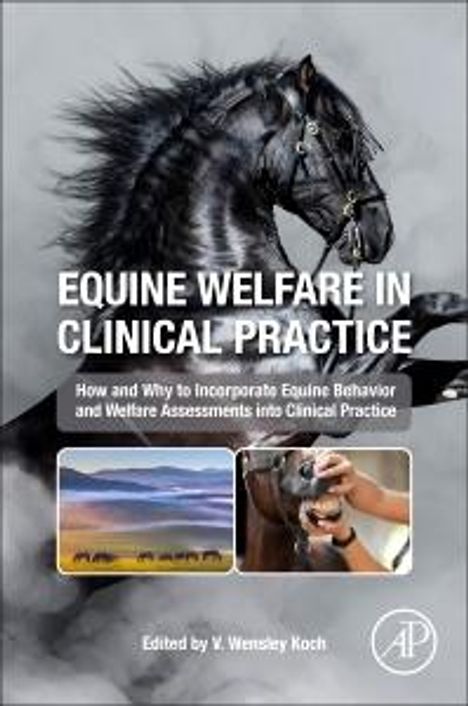Equine Welfare in Clinical Practice, Kartoniert / Broschiert
Equine Welfare in Clinical Practice
(soweit verfügbar beim Lieferanten)
- Herausgeber:
- Virginia Wensley Koch
- Verlag:
- Elsevier Science, 08/2024
- Einband:
- Kartoniert / Broschiert
- Sprache:
- Englisch
- ISBN-13:
- 9780323995085
- Artikelnummer:
- 11921090
- Umfang:
- 290 Seiten
- Gewicht:
- 820 g
- Erscheinungstermin:
- 30.8.2024
- Hinweis
-
Achtung: Artikel ist nicht in deutscher Sprache!
Klappentext
Equine veterinarians frequently encounter behavior and welfare problems, but they generally focus only on the physical issues affecting their patients because they lack the training to address psychological, behavioral, or other welfare issues. This book is meant to remedy that lack. As the primary source of medical information for horse owners, veterinarians need to address the unmet need for medical professionals to deal with equine mental health problems through treatment or referral. Science tells us that mental health determines an animal's welfare status. The public considers veterinarians to be animal welfare experts, so clinicians need to become familiar with animal welfare science. Knowledge of equine behavior science is important in assessing welfare, and even more importantly, the appropriate handling of horses requires behavioral expertise. Clients prefer veterinarians who handle patients with gentleness, and using persuasion instead of force improves equine welfare, handler safety, and practitioner effectiveness. Veterinarians who understand and can educate their clients in equine welfare and in safe and appropriate care and handling techniques will increase their business success and improve the lives of their clients and patients.
The book's topics are addressed by internationally recognized experts and are most important for those whose formal veterinary education neglected to cover animal psychology, behavior modifi cation, and animal welfare, but they also provide current information and useful practical tips for those already familiar with equine behavior / welfare science. Topics include practical welfare assessment; how horses learn (both good and bad habits); safe, appropriate, and fear-free training and handling techniques for both adult horses and foals; how equine behavior is affected by diet (and the microbiome), by the differences between horse and human senses and cognition, and by enrichment; differentiating medical from behavioral problems; and preventing and treating behavioral problems (including stereotypies). It describes the Equine Behavior Assessment and Research Questionnaire (E-BARQ), a tool that can assist veterinarians to introduce behavior into their practices in a simple and basic manner, and it offers guidance on resolving ethical dilemmas while advancing equine welfare. The final chapter offers resources for further study and access to specialists for consultation or referral. Ultimately, the book will serve its purpose if it helps improve the lives of horses, their owners, and their veterinarians.

